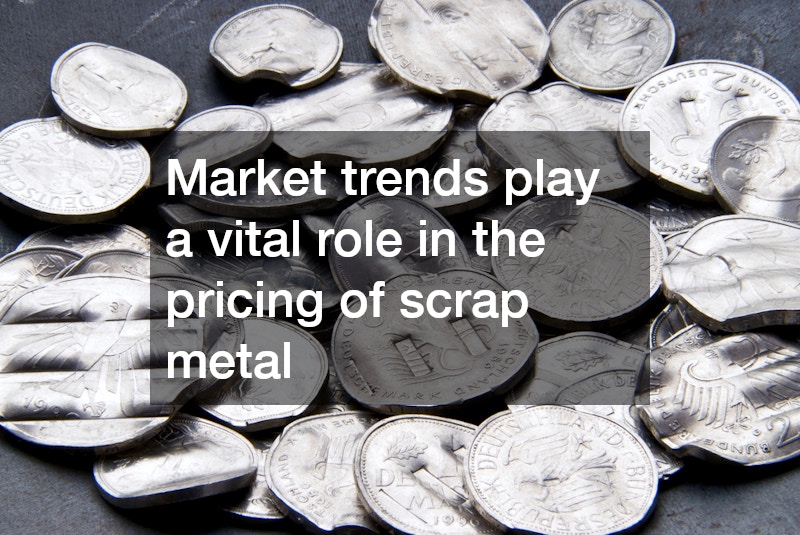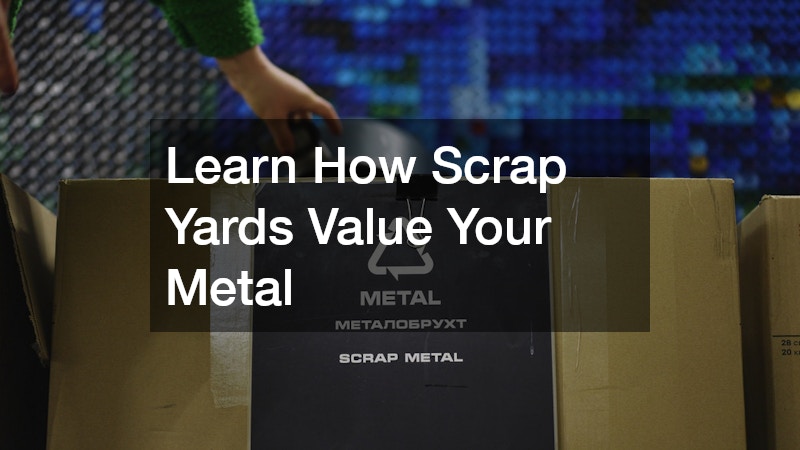Understanding how scrap yards assess the value of metal can help you maximize your profits when recycling scrap. Delve into the various factors that influence metal pricing in scrap yards.
What Factors Do Scrap Yards Consider When Valuing Metal?
When determining the value of scrap metal, scrap yards will evaluate several essential factors. The purity and type of metal significantly impact its worth, as different metals have unique market values.
For instance, copper and aluminum may yield much higher prices compared to mixed metals or certain alloys.
The condition of the scrap is another critical element. Clean, uncorroded, and unpainted metals fetch better prices than contaminated materials that require extensive processing. Scrap yards often differentiate between ferrous and non-ferrous metals, with non-ferrous generally offering higher returns.
Additionally, scrap yards consider the volume and weight of the metals being recycled. Larger quantities of clean metal can qualify for bulk pricing or discounts, making it advantageous to gather more material before selling. Furthermore, the location of the scrap yard and its operational costs, such as transportation and labor, can also affect the valuation process.
How Do Market Trends Affect Scrap Metal Prices?
Market trends play a vital role in the pricing of scrap metal. The global demand for various metals dictates their prices, which can fluctuate based on economic conditions, industrial demand, and geopolitical factors. Monitoring these trends allows scrap sellers to identify the right time to sell.
The price of recycled metals is also influenced by the prices of newly mined metals. For example, if the price of copper rises in the primary market, scrap yards may correspondingly increase their offers for scrap copper. This interplay between primary and secondary markets significantly impacts profit margins for those selling scrap.
What Types of Metals Are Most Valuable at Scrap Yards?
When recycling scrap metal, some types yield significantly higher values than others. Non-ferrous metals such as copper, aluminum, brass, and stainless steel are often the most sought after due to their high demand in various industries. Copper, in particular, is considered one of the most valuable scrap metals because of its excellent conductivity and wide use in electrical applications.
Ferrous metals, primarily composed of iron, are generally less valuable compared to non-ferrous metals, but they still hold considerable worth, particularly in large quantities. Steel, which is a major component of many industrial applications, can be profitable when sold to scrap yards, especially in bulk form.
In addition to pure metals, certain alloyed metals can also fetch good prices at scrap yards. Alloys that include high percentages of valuable metals like nickel or cobalt tend to attract premium prices. Knowing which types of metals are valuable can aid sellers in organizing their scrap material efficiently before recycling.
How Can You Prepare Your Metal for Sale to Get the Best Price?
To maximize profits from scrap metal sales, proper preparation is key. Begin by organizing and cleaning the metal to remove any impurities, such as dirt, plastic, or other non-metal materials. Scrap yards often pay higher prices for clean, sorted scrap, as it simplifies their processing and reduces operational costs.
Separate different types of metals, as they are valued differently at scrap yards. For example, keep aluminum, copper, and stainless steel separated to ensure you receive the best price for each. By identifying and grouping metals correctly, you can prevent the mixing of less valuable scrap, which may reduce your overall profit.
Finally, weigh your materials before heading to the scrap yard. Knowing the approximate weight of your metal allows you to estimate your potential earnings better. Transparency about metal weight and type can also facilitate a smoother transaction process, as scrap yard operators appreciate informed sellers who can provide accurate details.
What Are Common Myths About Scrap Yard Valuation?
There are several prevalent myths regarding scrap yard pricing that can lead to misconceptions among sellers. One common belief is that all scrap metal is worthless, which is far from the truth. Many types of scrap have substantial value and can yield significant returns when recycled properly.
Another myth is that sorting and cleaning scrap metal is not worth the effort. In reality, taking the time to prepare your metal can lead to much higher payouts. Scrap yards reward sellers who bring in clean, sorted materials, as it reduces processing time and costs.
Additionally, some people think that all scrap yards offer the same prices. However, prices can vary greatly between different locations depending on their operational costs and market access. Shopping around and asking for quotes from different scrap yards can help sellers find the best deals for their metals.
Being informed about how scrap yards value different types and qualities of metal can enhance your recycling experience and financial return. By learning the factors at play, you can make strategic decisions when selling scrap metal.

